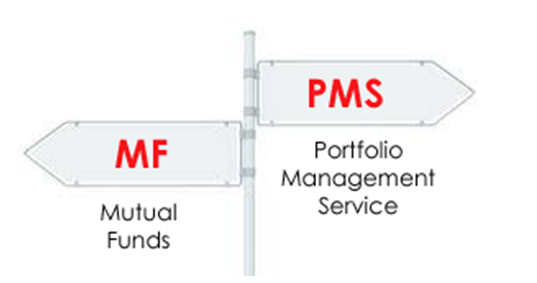Money
Portfolio Management Services vs MF: Which one is better?
Portfolio Management Services (PMS) vs MF: How both investments have fared in 5 years
In the last five years, Mutual Fund sector has seen a “spectacular growth” due to a combination of increasing awareness, rising markets, Association of Mutual Funds in India (AMFI) marketing campaigns, advancement of various new-age distributors.
All these have resulted in the Asset Under Management (AUM) increasing by 186 per cent to $340 billion and the folio base jumping about 110 per cent to 82.5 million, according to Vasanth Kamath, Co-Founder and CEO, Smallcase Technologies.
Compared to mutual funds, Kamath told FE Online that in Portfolio Management Services (PMS) industry, which has a minimum investment threshold of Rs 25 lakh, the number of clients has increased by 205 per cent since 2014, and AuM has grown at a CAGR of around 18%.
“In fact, the discretionary equity segment (where all decisions are controlled by the PMS) has seen an even rapid growth of 41% CAGR in the same period,” he said adding, “while mutual funds are the most common equity product amongst retail investors, PMS is considered to be a more sophisticated investment choice, since the fund manager has the ability to undertake complex investment strategies using equities, derivatives, commodities, etc.”
PMS’ performance, however, maybe hit if recent recommendations proposed by SEBI are implemented. The key takeaways of SEBI paper were:
- Minimum investment amount (or ticket size) doubled to Rs 50 lakh from Rs 25 lakh
- 250% increase in net worth requirement for portfolio managers, from Rs 2 crore to Rs 5 crore
- Distributor commission on PMS products will be only on a trailing basis to minimise mis-selling to investors
- Caps on exit load in a staggered manner (3% in 1st year, 2% in 2nd year, so on)
- Proposed standardisation of return calculations, since currently PMS can choose between different options, leading to inconsistent reporting & selling of performance.
“Portfolio management services, unlike mutual funds, are more complicated and riskier products and are meant for investors with higher risk-taking capacity. Increasing the limit is thought prudent, so that retail investors with limited understanding of volatility and risk, don’t enter this product,” SEBI had noted in its paper.
Commenting on SEBI’s recommendations, Kamath said, “While these guidelines aim to make PMS products more transparent and investor-friendly, they are likely to also slow down the stellar growth seen by the PMS industry, since the market of potential investors will reduce with the doubling of the minimum investment amount to Rs 50 lakh.”
Smallcase is a Bengaluru-based FinTech company which enables retail investors to invest their money in readymade portfolios through their existing brokerage accounts.
-
Health2 weeks ago
Is Drinking Cold Water Bad for Your Health? Understand the Benefits and Risks
-
Health3 days ago
Fatty Liver: Can You Cure This Liver Condition with Lemon Water? Fact vs Myth
-
Cryptocurrency3 weeks ago
Why You Should Never Buy Celebrity Memecoins | Crypto Scams Explained
-
Money3 weeks ago
How to File ITR Online Without a CA in 2025 – Step-by-Step Guide
-
Money2 weeks ago
Best SIP Mutual Funds 2025: Top 10 High-Return Schemes with up to 27% CAGR
-
Beauty2 weeks ago
Real Reason Behind Dark Underarms: Health Warning Signs, Not Just a Beauty Concern
-
Health5 days ago
Is Fasting Good for Weight Loss? Benefits and Risks Explained
-
Money4 weeks ago
Oswal Pumps IPO: Date, Price, GMP, Allotment & Full Review




























